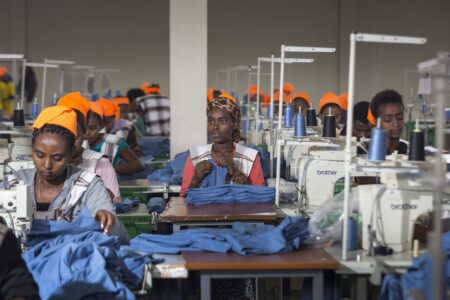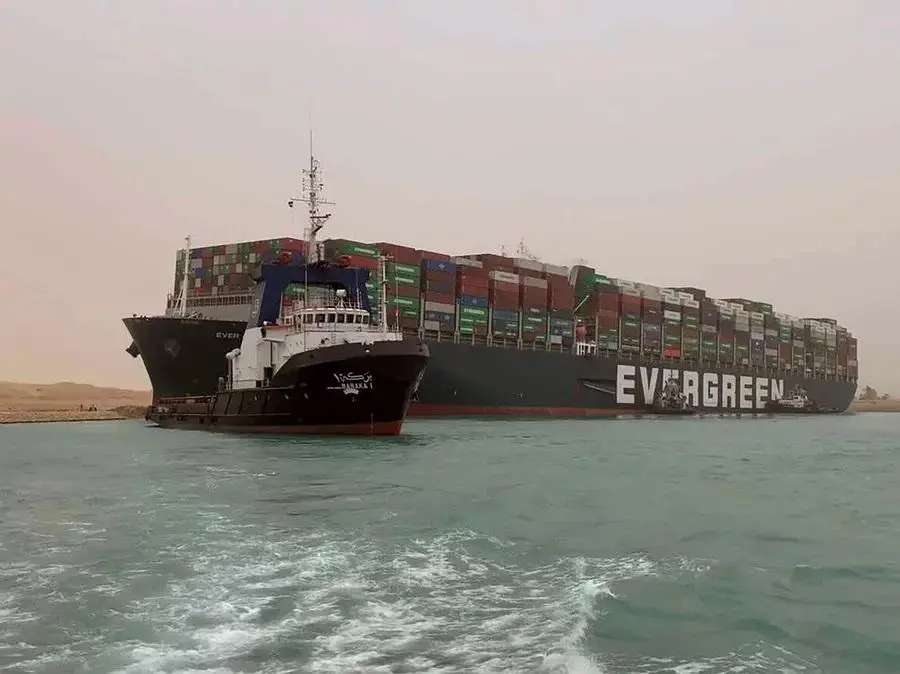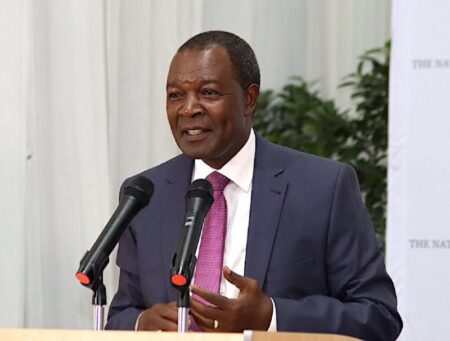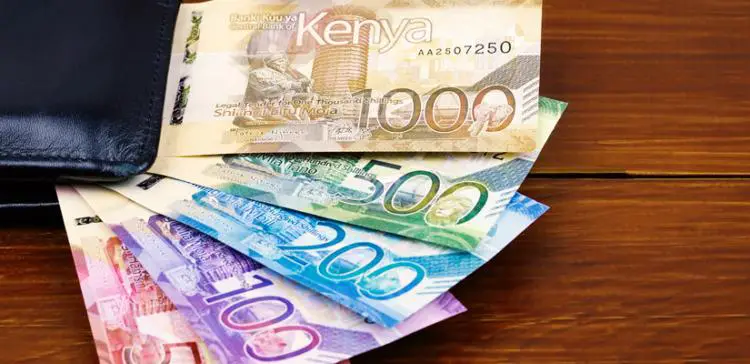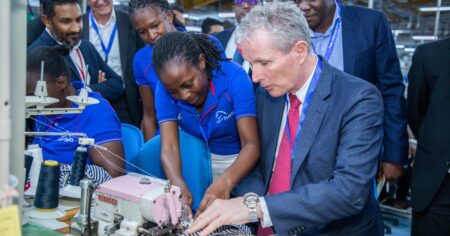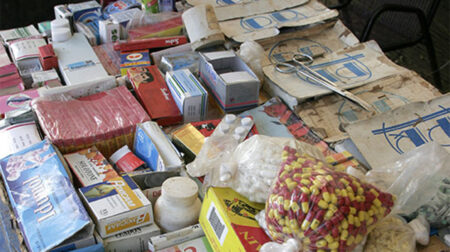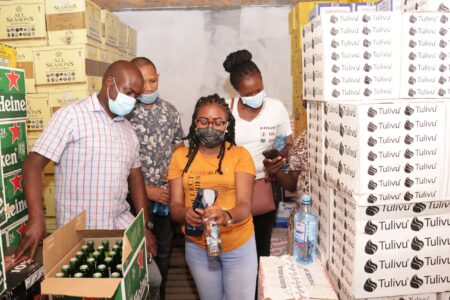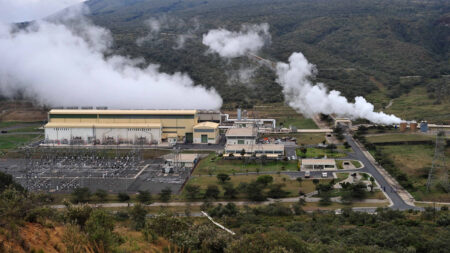- Africa’s new dawn: the rising role of digital and AI in agriculture
- Can Dangote Refinery Transform Africa Energy Ambition
- Gallup Survey: 80 per cent of Kenyan Workers Are Disengaged and Seek New Opportunities
- Madagascar Man Freed from 5KG Tumor After 15-Year Struggle
- How women in Africa are perceived and treated
- Sugar consumption in Kenya to Increase to 1.23 Million Tonnes
- Can Somalia and Turkey Oil deal Bring Change in Somaliland
- Remittances to Kenya dropped to $371.6 million in June, marking a six month low
Browsing: Kenya Association of Manufacturers (KAM)
-
- Output rises at the sharpest rate in 20 months.
- New order volumes strengthen.
- Input costs fall for the second month in a row.
Kenya recorded an improvement in private sector business conditions during May, as falling cost burdens and rising new business contributed to a solid expansion in activity.
The Latest Stanbic Bank Kenya Purchasing Managers’ Index indicates that activity’s upturn was the sharpest in 20 months, as was input buying growth.
Job creation continued at a mild pace even as reductions in fuel prices and import costs led to a further drop in overall input prices in May, after the first decrease in nearly four years during April.
Selling prices started to rise again, albeit slowly. The Purchasing Managers’ Index (PMI). Readings above 50.0 signal improved business conditions in the previous month, while readings below 50.0 show a deterioration.
The latest headline PMI reading of 51.8 marked the index’s
- Major shipping lines among them Mediterranean Shipping Company (MSC) and Maersk have been avoiding the Red Sea and the Suez Canal route.
- This move follows attacks by the Iran-backed Houthi rebels in Yemen, who have been targeting ships travelling to Israel.
- The Houthis have declared their support for Hamas in the ongoing war Israel war in Gaza that erupted following October 7 Hamas attacks.
The East African region remains exposed to high freight costs even as shipping lines indicate they are resuming voyages through the Red Sea after a hitch in December, caused by attacks by Houthi rebels.
Major shipping lines, including the world’s leading container carrier, the Mediterranean Shipping Company (MSC), and the second-placed Maersk, have been avoiding the Red Sea and the use of the Suez Canal.
This decision came after persistent attacks by the Iran-backed Houthi rebels in Yemen, who have been targeting ships traveling towards Israel.…
- Businesses in Kenya are facing the impact of tightened monetary policy that is resulting in high lending rates.
- The government is under increasing pressure from investors to settle huge pending bills.
- At the same time, the Kenya Shilling is steadily losing ground against major world currencies, piling pressure on external debt obligations.
In the second half of the year, business optimism for companies and sectoral growth prospects in Kenya appears to be subdued, largely influenced by the dual challenges of high taxes and a weakening Shilling.
The government’s task of balancing rising debt levels with tax revenue generation is taking center stage in a scenario complicated by other economic factors.
A confluence of high-interest rates within the banking sector, a politically sensitive environment, the accumulation of pending bills that impact private sector cash flow, and the depreciation of the Kenyan Shilling is painting a complex business environment.
The Shilling has …
- The Kenyan shilling has fallen to a new low of 140.04 against the US dollar.
- Central Bank of Kenya data shows the unit is also losing to other major currencies including British Pound and Euro.
- Last year, the Kenyan shilling depreciated by about 7.5 per cent against the US dollar, the UAE dirham (7.5%), Saudi Riyal (7.4%) and the Chinese Yuan (3.1%), the Kenya Economic Survey 2023 shows.
As developing market currencies continue to suffer from the worldwide increase in interest rates, which is being spearheaded by the US Federal Reserve, the Kenyan Shilling has dropped to a historic low in relation to the US Dollar.
The Fed has increased the benchmark rate ten times in a row, or a total of five percentage points, since March of last year. In the last 40 years, these increases are the most abrupt. In an effort to combat US inflation, interest rates …
Kenyan manufacturers have raised concerns over several proposals in the Finance Bill 2023. The country looks forward to the next financial year’s budget that the treasury cabinet secretary will table in June. The country’s National Treasury has proposed several new tax measures. Under these measures, the public and private sectors will cough more taxes to fund the 2023/24 budget.…
- Price point remains a key magnet for fakes across East Africa. Counterfeit products are often cheaper than their genuine counterparts, making them easy picks for people shopping for a bargain.
- Some of the most counterfeited products in the region include pharmaceuticals, pesticides, electronics, cosmetics, alcohol, and cigarettes.
- According to the East African Business Council, counterfeit products, primarily fast-moving consumer goods, are costing East African states between US$500 million and US$1 billion per year.
Counterfeiting sticks like a sore thump or a bad hangover causing a big headache for governments and policymakers across East Africa as rising number of products including pesticides, cigarettes, and alcohol become deeply affected by the menace.
Some of the most counterfeited products in the region include pharmaceuticals, electronics, cosmetics, liquor, and cigarettes. Other products that are often counterfeited are clothing, shoes, and accessories, as well as automobile parts such as batteries.
The illegal trade of …
- The country is considered East Africa’s strongest economy.
- It is among countries facing a huge challenge of illicit trade, estimated to be valued at above USD6.34 billion (Ksh800 billion).
- According to official government data, up to 70% of imported goods are counterfeits.
Kenya has a domestic market of over 50 million people and is among the leading economies in sub-Saharan Africa.
The country is considered East Africa’s strongest economy, with the region having a GDP of about USD163.4 billion (at purchasing power parity, about USD$473 billion), and the average GDP per capita is about USD941 (at purchasing power parity, $2,722).
In addition to the EAC market, investors in the partner States have access to other African markets such as COMESA, SADC and AfCFTA, as well as international markets through preferential trade arrangements.
The Common Market for Eastern and Southern Africa (COMESA) comprises 21 Member States with a population of 560 …
- Public-Private Partnerships have allowed drilling and geothermal energy production capacity to rise.
- Combined with hydro, these two sources contribute 65.62 percent of the total, while wind and solar account for 18.69 percent.
- While Kenya Power has tried to revise energy prices in the country, analysts observe that expanding geothermal investments will provide the country with cheaper power for future expansion.
Kenya Association of Manufacturers (KAM) has launched an organization that will address post-
The launched Kenya Extended Producer Responsibility Organization (KEPRO) , according to KAM brings together players in the value chain.
KEPRO aim
KEPRO’s aim is to increase national awareness and protect Kenya’s natural environment from waste and pollution. This is being done by providing incentives and subsidies to improve the growth, efficiency and viability of the waste collection, sorting and recycling sector.
Also Read: UAE commences transporting oil to Europe via an Israeli pipeline
Through a press release sent to newsrooms on Wednesday June 9, 2021, the association said KEPRO aims to promote collaboration, seek commitment by waste value chain players and support the achievement of a circular economy in Kenya.
Green growth in the manufacturing sector
Principal Secretary for Environment at the Ministry of Environment and Forestry Dr. Chris Kiptoo who spoke
The Kenya Association of Manufacturers (KAM) has partnered with e-commerce players in Kenya to boost access of manufacturing SMEs to local and international markets through e-commerce.
This is in the wake of low uptake of e-commerce in Kenya despite its immense benefits.
The partnership, therefore, seeks to promote the uptake of e-commerce by SMEs to enable them to gain access to global markets and new international customers and reinventing their business models to align with changing technologies.
Speaking at the inaugural event, KAM Board Member and SME Hub Chair, Ms Ciiru Waithaka noted that the increased attention on SME growth, both at a national and global scale, points to a reckoning that the future of business hinges on their success.
“The unique and dynamic nature of SMEs in the manufacturing sector calls for an adaptive approach in developing policies and interventions that most importantly centres their needs and proposed solutions …





